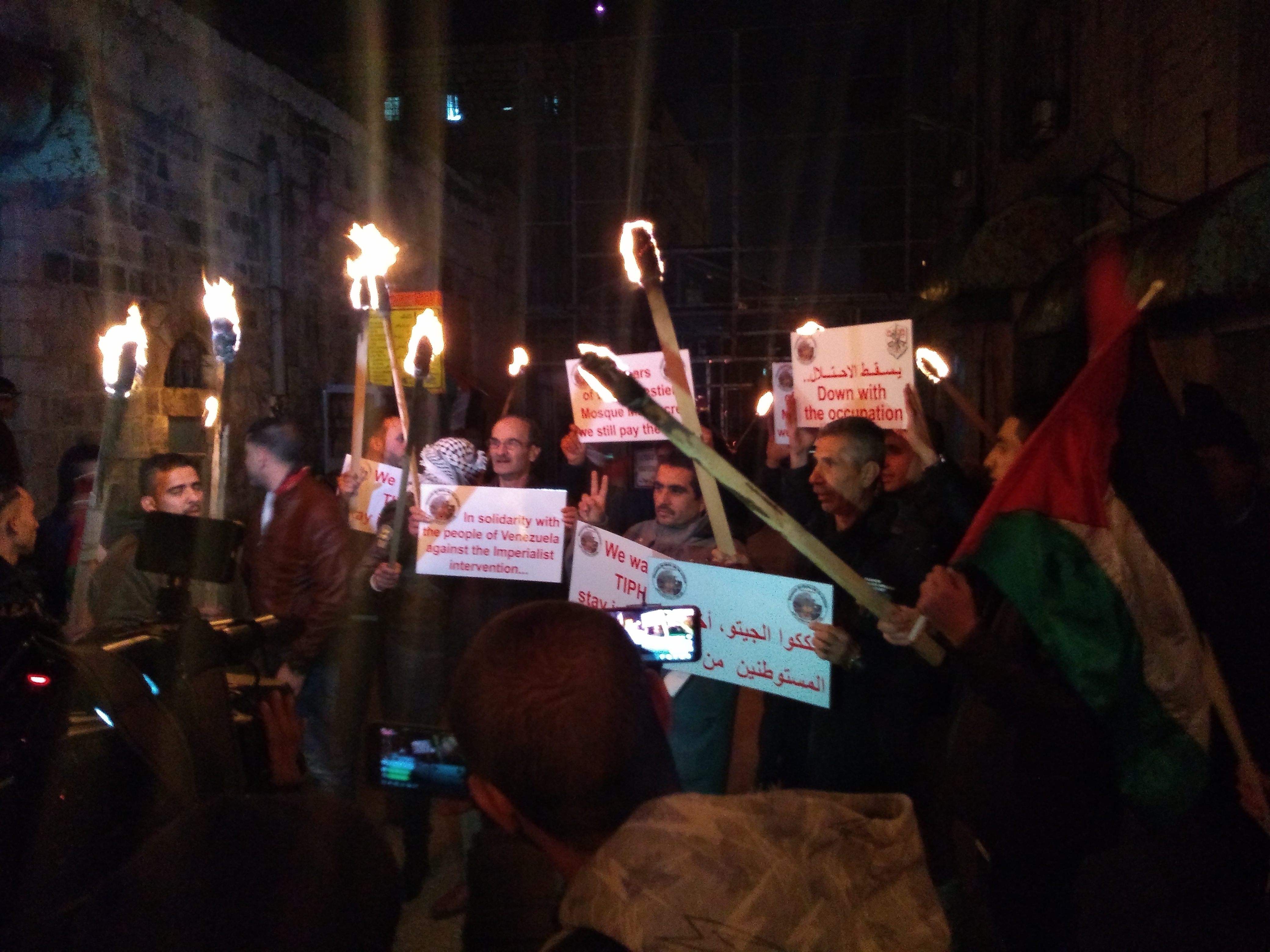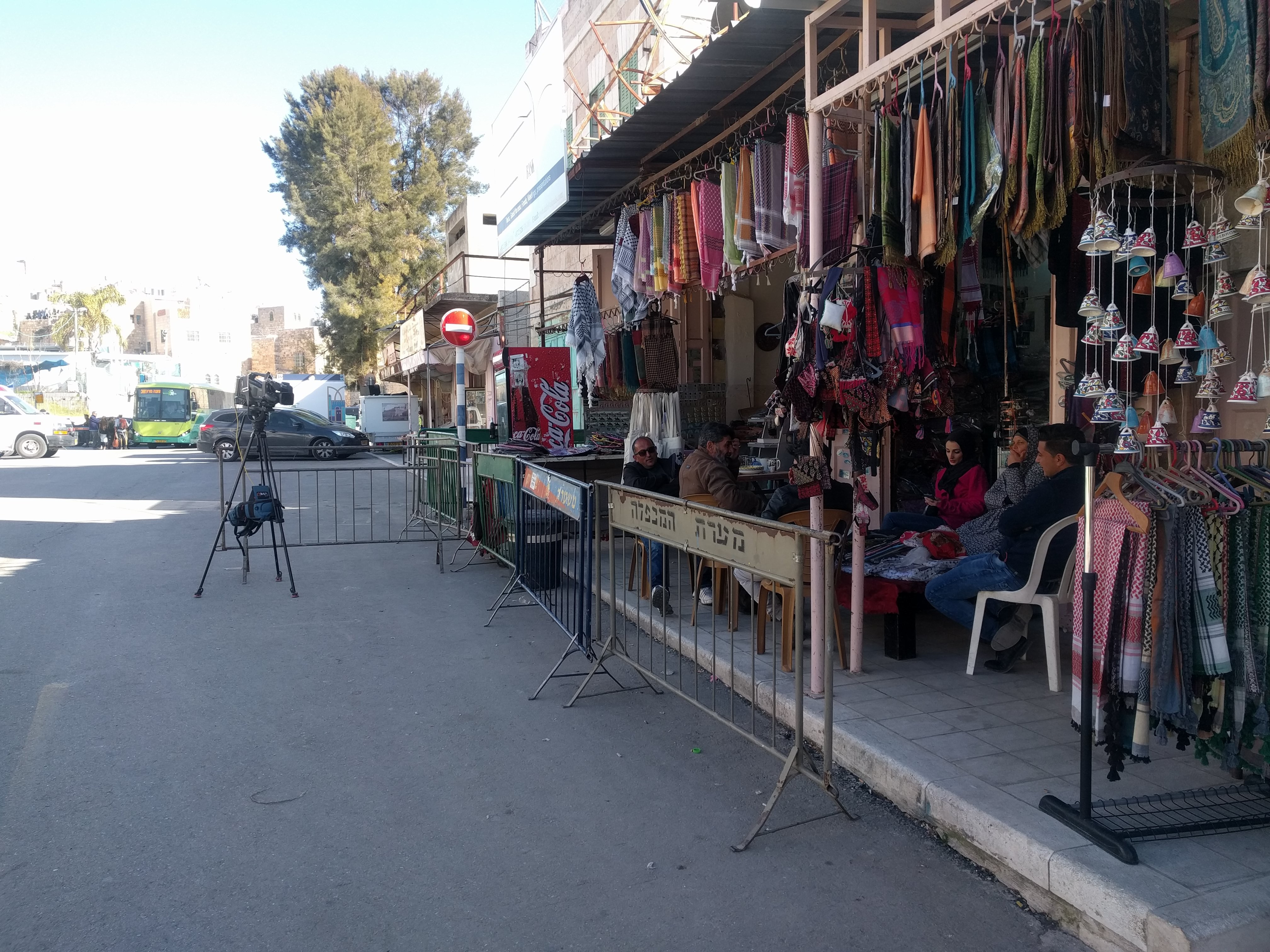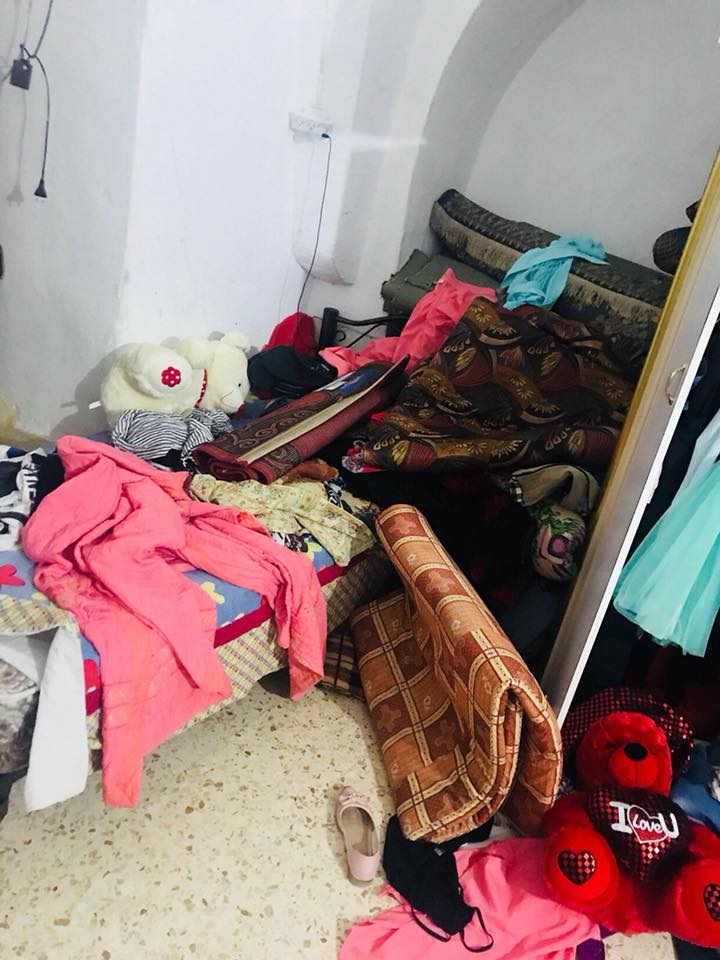Tag: Al Khalil
-
A Report-back from Dismantle the Ghetto’s Torch March
10th February 2019 | International Solidarity Movement, Al-Khalil team | Hebron, occupied Palestine Demonstrators marched through Al-Khalil today holding torches, flags and signs that called for the re-opening of the stolen Shuhada street, the return of TIPH and other international support, the end of the occupation, as well as a statements of anti-imperialism, anti-colonialism and solidarity…
-
“Hundred Million Dollar Home” Hebron Shop Keeper Punished for Resistance to Occupation
2nd February 2019 | International Solidarity Movement, Al-Khalil team | Hebron, occupied Palestine Today, our good friend Abdulraouf Al-Mohtaseb’s, the famous owner of the 100 Million Dollar home , had his shop enclosed by steel barricades. We condemn this blatant act of aggression by the IDF against shop owners in the Old City of Al-Khalil. This…
-
ISM speaks to ‘Aref Jaber about the increase of raids by Israeli forces in his neighborhood
23rd June 2018 | International Solidarity Movement, Al-Khalil team | Hebron, occupied Palestine ‘Aref Jaber lives in the Jaber neighbourhood in the H2 area of occupied Hebron, under Israeli control. He is a local activist and works with Human Rights Defenders filming and publicising the violations of international law committed by Israeli forces in his…



